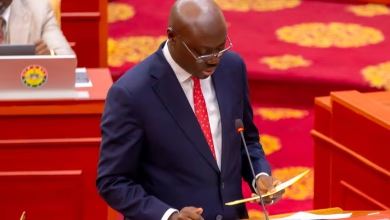Ghana’s Oil Sector Faces Crossroads Amid Declining Production and Investor Exodus

- Ghana's petroleum sector is grappling with a decline
- This is is attributed to unfavorable investment conditions
- Govt should reduce the corporate income tax rate
Ghana’s petroleum sector, once a beacon of economic promise following significant oil discoveries, is now grappling with a decline in production and a departure of international oil companies (IOCs).
The Public Interest Accountability Committee (PIAC) report highlights a 6.78% reduction in crude oil production in 2023, contributing to an average yearly decline of 9.2% over the past four years.
This trend is attributed to unfavorable investment conditions, particularly high taxation and regulatory uncertainties, which are driving investors to neighboring countries.
Body:
The decline in oil production is a symptom of deeper issues within the sector. Despite initial growth, production has dropped from around 200,000 barrels per day in 2019 to approximately 170,000 barrels per day in 2023.
This decline is primarily due to fiscal policies and regulatory challenges that have not kept pace with the evolving global oil market.
Taxation as a Major Hurdle:
Ghana’s taxation regime for the oil and gas sector has been criticized for its high rates and complexity. The 35% corporate income tax, surface rental fee, and varying royalty rates make the country less attractive compared to neighboring nations like Namibia and Côte d’Ivoire.
These countries offer lower tax rates and more favorable fiscal terms, incentivizing investors to choose them over Ghana.
Regulatory Challenges and Bureaucratic Delays:
The regulatory framework in Ghana has also been a deterrent to investment. The licensing process is often characterized by lengthy bureaucratic delays, creating uncertainty for potential investors.
This lack of transparency and predictability has discouraged exploration and development activities.
Impact of Unfavorable Conditions:
The unfavorable investment conditions have had a significant impact on Ghana’s oil sector:
- Reduced Exploration Activities: Exploration activities have declined by over 40% since 2018, with only a few new wells being drilled.
- Decreased Investment: Investment in the oil sector has dropped from $3 billion in 2015 to around $1 billion in 2022.
- Fluctuating Government Revenue: Government revenue from the oil sector has declined, reflecting the decrease in production.
Policy Recommendations:
To revitalize Ghana’s oil sector, the government should consider the following policy reforms:
- Tax Reforms: Reduce the corporate income tax rate, remove VAT on exploration inputs, and introduce tax holidays for early production phases.
- Regulatory Efficiency: Streamline regulatory procedures, establish a one-stop regulatory body, and implement a transparent digital licensing platform.
- Incentives for Exploration: Introduce tax credits, royalty relief, accelerated depreciation, and a risk-sharing exploration fund to encourage exploration activities.






